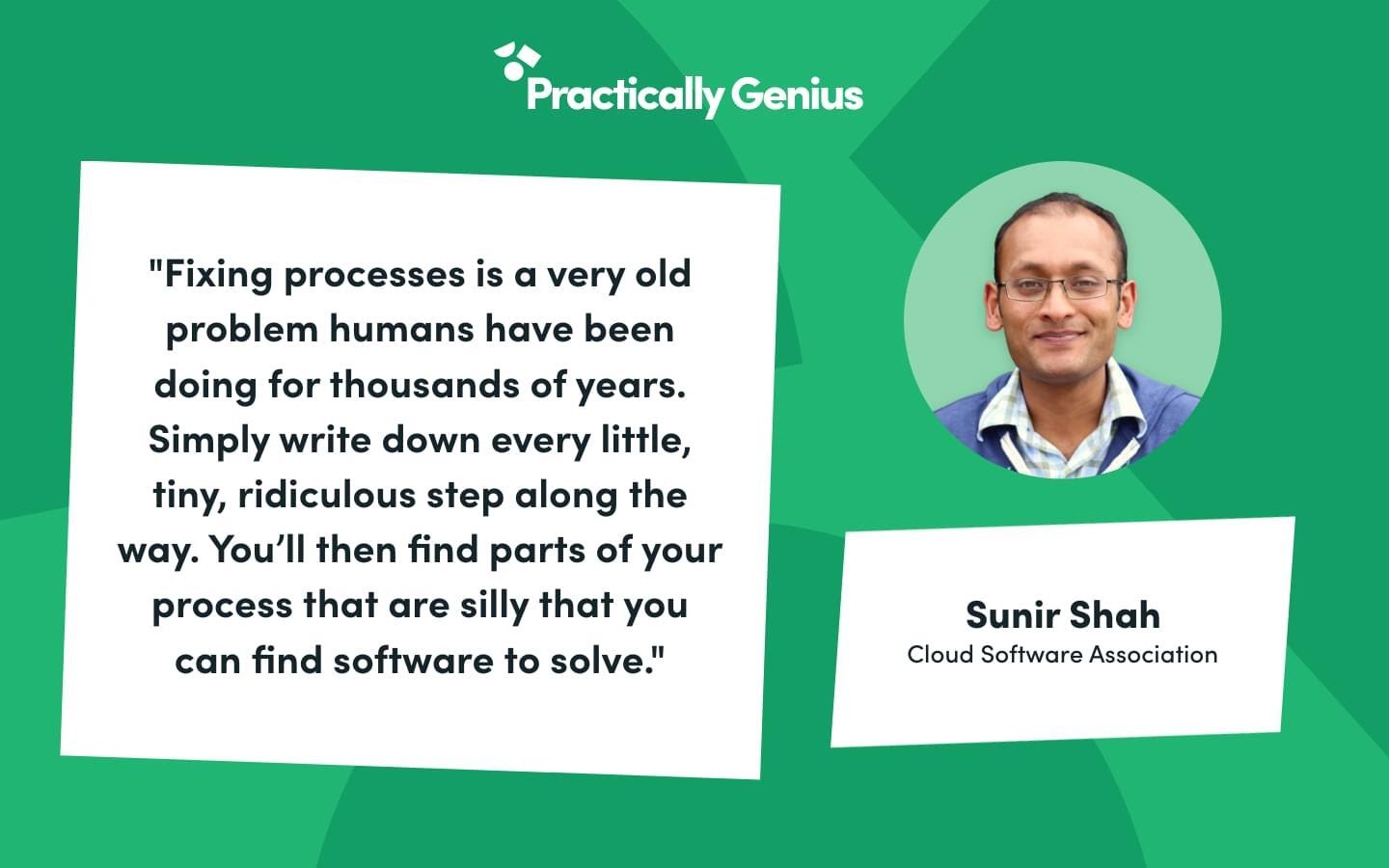We all face complicated challenges at work that can sometimes seem impossible to overcome.
I’m talking about the types of problems that can keep you up at night, make you gulp down a third (or fourth!) cup of coffee, and leave you feeling exhausted and frustrated.
But there’s no need to despair. Even when you feel like you'll never come up with the right solution, there are strategies you can use to reposition and refresh your thinking. You can come up with creative solutions to your most difficult workplace problems. Sometimes, it just takes a fresh perspective to discover your next great idea.
When you’re struggling with a workplace challenge that seems unsolvable, use the strategies below to find new ways to tackle the issue. You may even develop an idea that is practically genius.
Identify the root problem.
Oftentimes when faced with an issue, there are a lot of compounding factors that make it difficult to find a solution. Problems seem to pile up quickly, and trying to solve them all at once is nearly impossible.
When trying to tackle an issue, take some time to identify the root problem. Whether it’s a broken process, lack of instruction, or a breakdown in communication, discovering the core cause of the issue will help you solve the problem quicker and easier, instead of spinning your wheels. If you can’t quite identify the root problem, simply start by picking the largest issue and go from there.

Pro Tip: Being a problem solver often means making big changes. Check out these change management tips to help guide you through the next big shift you need to implement.
Break down the process.
If the issue at hand is a broken or inefficient process, take the time to map out every single step to give yourself the full picture of what may need fixing or improving. No step is too small to note.
As Sunir Shaw noted in his Practically Genius interview, it’s important to fully understand the entire process in order to identify areas you can easily improve.

Whether you use a list, flow chart, whiteboard, or even pen and paper, taking the time to map out the process from start to finish can help you visualize all the steps. This will make it easier to identify where something may be going wrong.

Listen Now: Discover expert advice on how to simplify business processes in the digital age. But don’t think simplicity limits innovation; it actually enables it.
Consult a fresh pair of eyes.
One way to build upon your problem-solving skills is by collaborating with others. If you’re feeling stuck, it may be time to bring in a fresh pair of eyes to help you process the problem.
After some time, you can become so entrenched in the problem that you begin to put blinders up. Consider this the equivalent of when true crime shows say the investigator had tunnel vision on one suspect. You may get so focussed on the problem at hand that you begin to limit your brainstorming or become preoccupied by one particular issue, idea, or solution.
Bringing in a colleague who is not already involved in solving the problem may be just what you need to get ideas rolling again. They can act as an unbiased sounding board who can help you ideate from new perspectives and approach the issue from different angles.

Don’t be afraid to fail.
The fear of failure can actually hinder us from being better problem solvers.
When you’re afraid to fail, you may begin limiting your ideas and brainstorming. There’s always risk when trying out new ideas, but it’s worthwhile to investigate a risky idea instead of just dismissing it. If you put in the time to thoroughly vet your ideas, you should be able to mitigate some (possibly even most) of the risk.
Trying out something that has never been done before can be very scary. But oftentimes the best innovations come from overcoming that fear of failure and trying out new, bold ideas. Jeremy Parker explained this tip best during his Ripple Effect podcast interview:
Take a break.
Do you have problem block? You may have heard of writer's block. It's like that, but instead of words not flowing, it's ideas. Sometimes you just get stumped and can’t continue to think of creative thoughts or solutions.
It’s ok! This is actually a natural occurrence. According to research, your brain can only optimally focus on a task or project for 52 minutes before fatigue and brain block sets in.
The solution? Take more breaks!
To become a better problem solver, you need to ensure your brain is able to quickly and easily process data, then put that data to work. When you’re overly fatigued, stressed, or burnt out, you deplete your brain’s ability to do good work.
Avoid these negative issues by taking breaks throughout your day. Whether you use a timer on your phone or an app on your computer, finding a way to integrate breaks into your day will help you feel more refreshed and productive as you tackle big challenges.
Related: Simple Ways to be More Productive During Your Workday
Discover your practically genius idea now!
Putting the tips above into practice can help you approach solving problems in new ways. By becoming a better problem solver, you can become more efficient at discovering creative solutions to your biggest workplace challenges. Who knows, your next idea may be practically genius and ignite something amazing!
Want to learn more about what it takes to be a better problem solver? Find ingenious solutions to your most common by watching our practically genius video series now!











